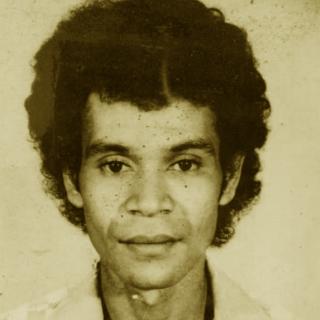Joao Vaz was born on 23 September 1961 in the city of Lospalos, East Timor. He was Portuguese by birth, as the region was under Portuguese rule at the time, but later became Indonesian. After primary school, Joao engaged in technical studies for a year, completing his formal education in 1975.
Over the next two decades, Joao held several jobs in Dili, the capital of East Timor. From 1981 to 1989 he was a driver at the city’s port; he then spent three years working for a wholesaler; and from 1992 to 1994 he served as a driver and mechanic at a local workshop. He spoke Tetun, Fataluku and Makasae – three languages of East Timor – along with Portuguese and Bahasa Indonesia.
In 1994, the ICRC hired Joao as a driver at its delegation in Dili. His primary task was to ferry local and international staff around, including to and from the airport. But the scope of his duties was not limited to sitting behind the wheel: he assessed staff members’ travel requests and kept the office apprised of them; helped manage the delegation’s fleet of cars and keep them in a good state of repair; and prepared the cars that delegates would take into the field. His day-to-day work brought him into close contact with staff members of both the ICRC and the Indonesian Red Cross Society.
Joao was committed to his work and the ICRC. He was flexible, adaptable, able to work independently and showed a great sense of initiative – including a knack for finding solutions and providing useful advice. To top things off, he had a positive attitude and good sense of humour. As the years went by, Joao assumed more and more administrative responsibilities at the delegation.
In 1999, the unrest in East Timor intensified and, in early September, Dili was hit by a wave of violence that targeted both people and property. The ICRC evacuated expatriate staff from the country, while local personnel sought refuge in the western part of the island, including in Atambua. That was where a local militia abducted Joao. Years later, Joao’s remains were identified and transferred to his hometown of Luro. He is believed to have been killed on 10 September 1999, at the age of 38.
In Joao’s application to join the ICRC, he lauded the organization for making no distinction among the people it serves. Of course, that approach is only possible thanks to people like Joao: with his humanitarian mindset, work ethic and language skills, he was instrumental in building bridges between the ICRC and all communities of East Timor.
